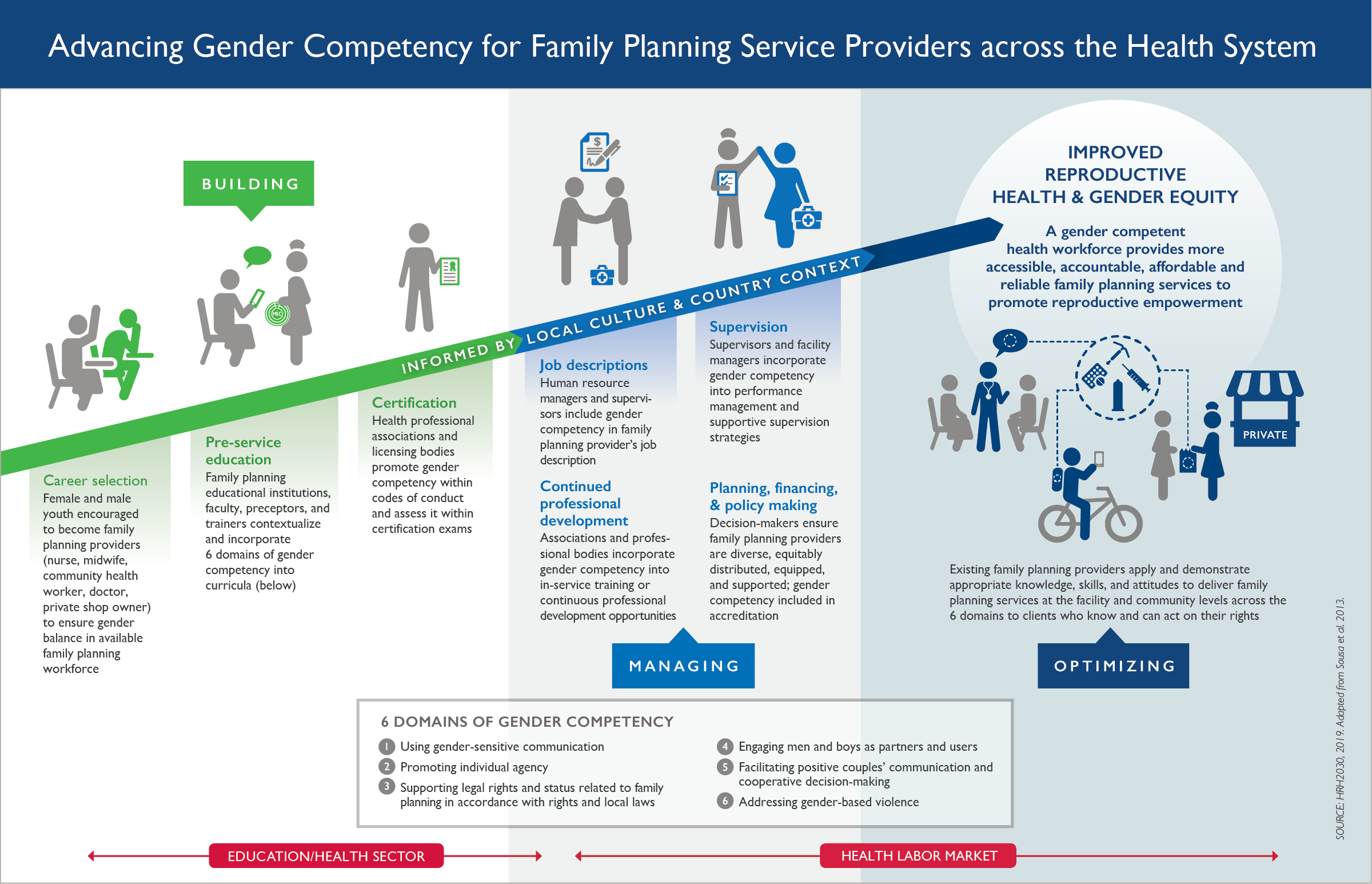21 Jul Applying Gender Competency to the HRH2030 Health Worker Life Cycle
In global health, gender competency enables health workers to identify how different norms, social constructs, roles, expectations, power differentials, opportunities, and constraints assigned to women, men, girls, and boys may influence behavior and choices. A gender-competent health worker strives to apply the needed knowledge, skills, and attitudes to create equitable opportunities for women, men, girls, and boys to make voluntary and informed decisions based on their needs.
Gender competency is not mastered instantly or performed in vacuum. Gender competency should be incorporated and learned in pre-service education settings but takes practice and experience to master and sustain. It is critical to have system-level support and resources to adequately demonstrate gender competency. At the same time, clients should know their rights in accessing respectful care.
To show the many ways gender competency can apply for the health workforce, this version of the HRH2030 Health Worker Life Cycle visually illustrates the dynamics of the health labor market and the complex range of potential interventions to incorporate gender competency in strong HRH systems. The model uses the Sousa et al. Health Labor Market Framework which informed the World Health Organization’s Global Strategy on Human Resources for Health, but adds a health worker-centered angle.
Please click on the infographic to enlarge:
Associated Content:
Three Main Takeaways: Testing the Gender Competency Framework in Ethiopia
A Compendium of HRH2030 Resources Regarding Gender, Women, and Health
Four Takeaways: Testing the Gender Competency Framework in the Philippines
Empowering Health Workers to Provide Gender-Competent Family Planning Services
Three Questions with Samantha Law: Creating a Gender-Competent Family Planning Workforce
HRH2030 Vets Gender Competency Work with Experts
Empowering Health Workers to #BeBoldforChange
Country: Global
Resource Type: Other
Topic: Family Planning, skill mix and competency, gender
DOWNLOAD






